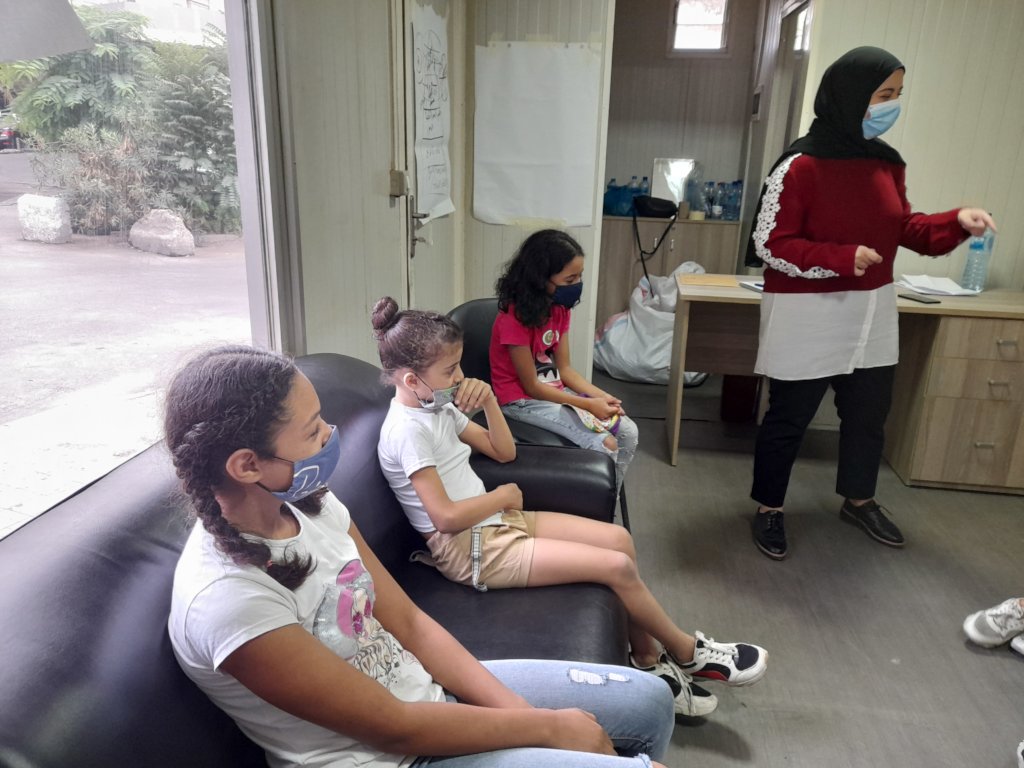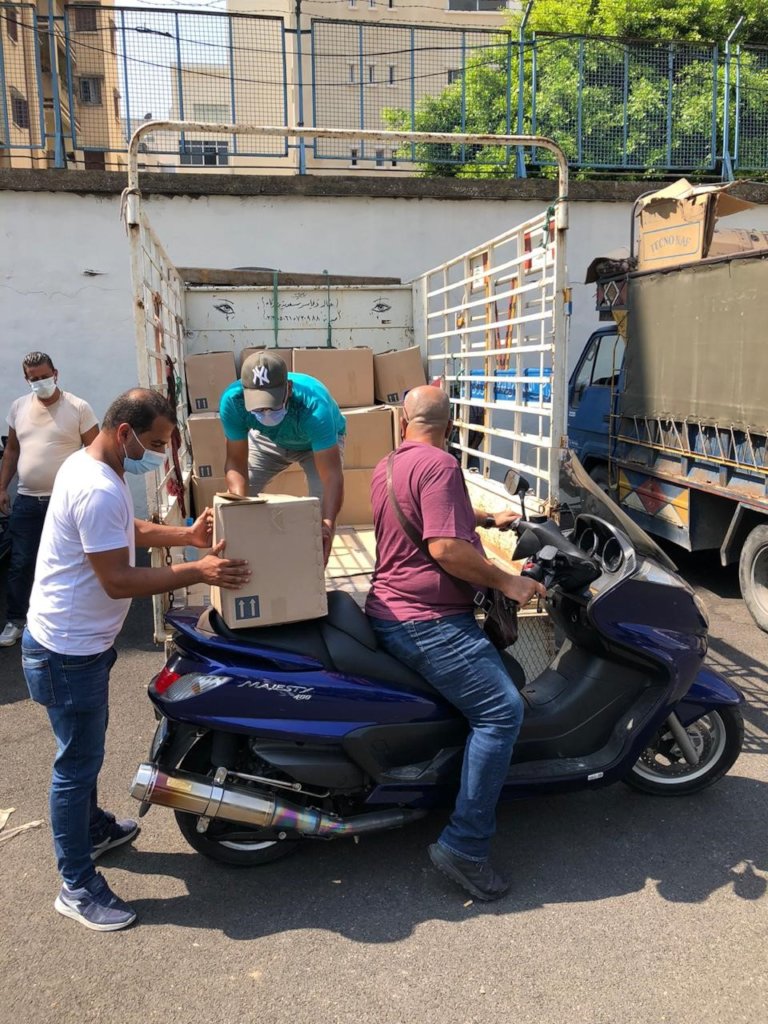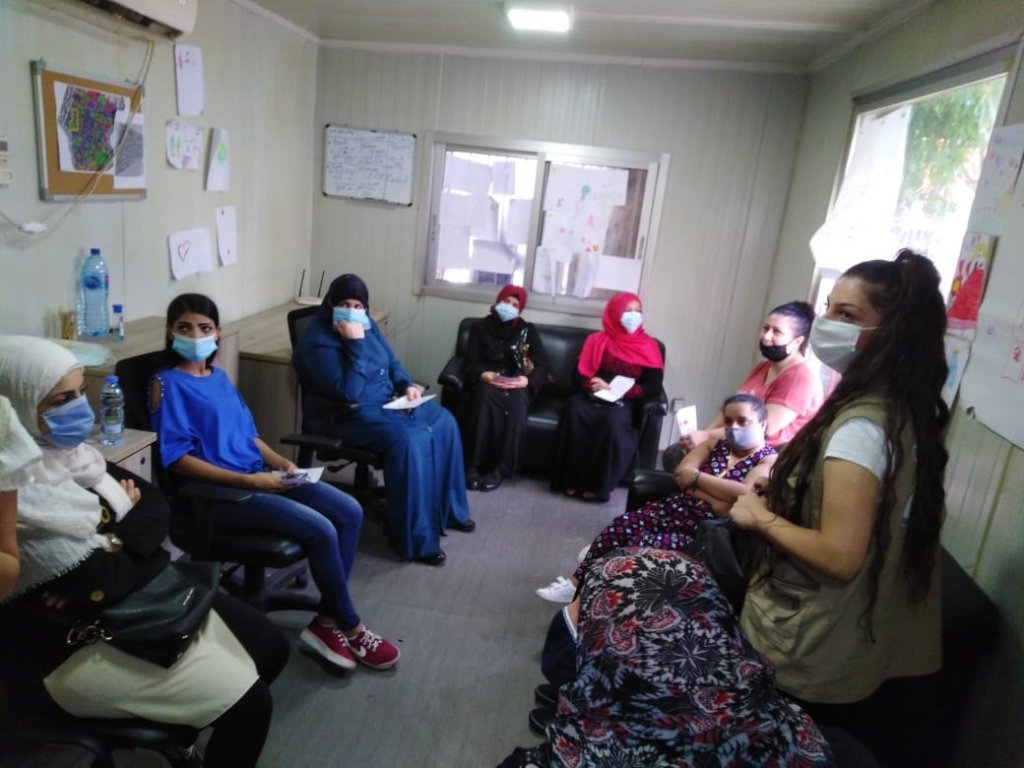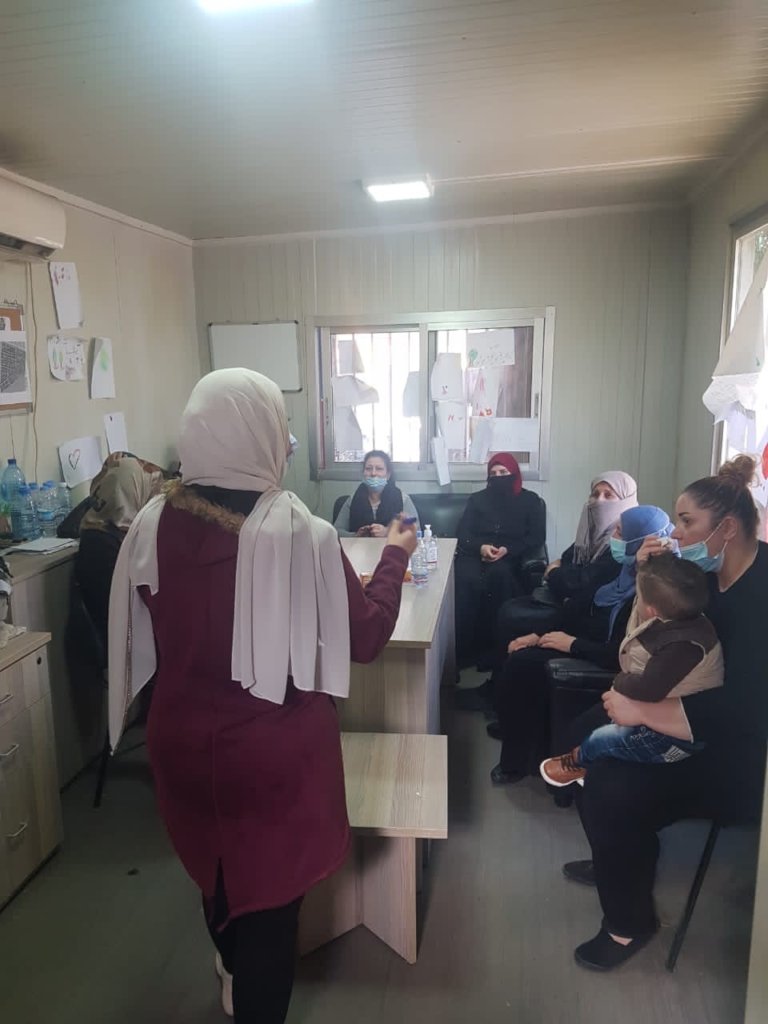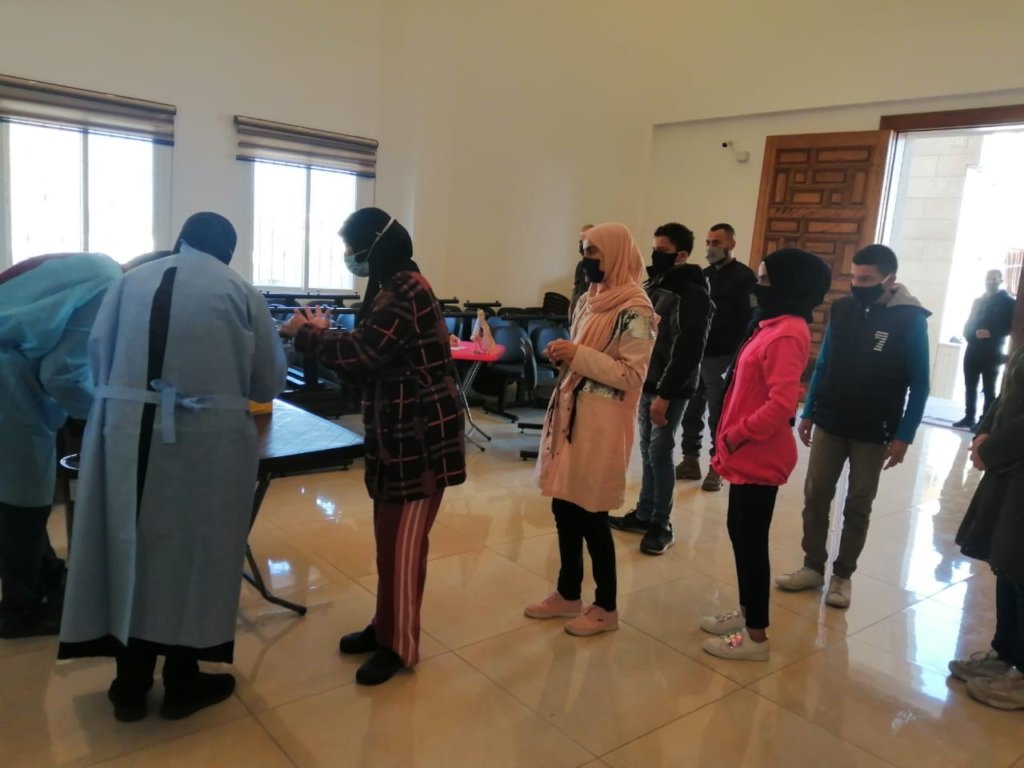By Hiba Hamzi | Program Coordinator
Background during and after the implementation of the project;
It became clear how fragile the health system was in most countries of the world, including those that were ranked advanced in various fields. The general situation in Lebanon is ominous, with political divisions, economic collapse, the debt payments of foreign debt and the great benefit in the face of the Corona epidemic. Lebanon has recorded 1946 cases of coronavirus (last update 10th July 2020), which has caused 24 deaths in the country so far. The rates of commitment to prevent mixing and leaving houses vary from region to region where life seems very normal in most areas in terms of large numbers of people in the street and banks! The daily report shared by the Ministry of Health shows that the number of tests achieved until today reaches 10,808 while Lebanon is receiving 4 flights from outside including Lebanese students, special cases especially from the countries that categories as epidemic countries!
The population of Lebanon is around 5 million including 274.000 Palestinian refugees and around 950.000 Syrian refugees. during the spread of COIV – 19, the government has taken a safety measures including the block down ,but at the same time serving the Lebanese citizens without including refugees in its social fund that aims to encourage citizens to quarantine at home by them self .
The Syrian refugees are on the mandate of the UNHCR while the Palestinian refugees are exclusively served by The United Nations Relief and Works Agency for Palestine Refugees in the Near East (UNRWA).
Lebanon hosts the highest number of refugees per capita in the world. UNHCR estimates approximately 1 million and half displaced people in need across the country and having a very strict restrictions on entering the country since 2015, as well as hundreds of thousands of long-term Palestinian refugees and asylum-seekers.[1]
Lebanon is starting to ease lockdown-related restrictions after significant social pressure. The deterioration of the economic situation has accelerated and “hunger” protests take place, as labelled by the media. Refugees have been subject to additional municipal – level movement restrictions and are particularly affected by the lack of access of basic services. According to Action Against Hunger assessment done by 130 headed household person showed 88% of a large increase in requests for food assistance and cash assistance.
Naba’a Achievements; During the last period, The most highlighted achievements during the last period;
- Providing online psychosocial support for women and girls whom are at risk gender based violence, including, vulnerable Lebanese, Palestinian and Syrian refugees. Whereas, in Ein El helweh camp 320 adolescent girls and 220 women
- Distribution food parcels for 200 families
- Distribution Hygiene and disinfection kits for 170 families
- Provision remote GBV specially case management and PSS and establishment of adequate referrals to connect women and girls to appropriate service provision
- Referring women and girls whom are at risk of violence and abuse to psychosocial support, legal aid, etc…
- Distributing toys for 75 children whom are in quarantine
Case study;
The wife lives with her husband and her three daughters (9-7-5) years old; they are living on rent in a house consisted of two rooms. The wife has many problems including social, economic, and psychological, due to economic situation where the husband does not work because he suffers from cardiovascular and disk diseases, which negatively affects the economic situation where the family depends on local and international assistance. The wife was working as a housekeeper, but after the coronavirus outbreak and the general situation in the country, she was laid off from work, which increased the stress and anxiety among her family, especially her children, where there is no breadwinner. As for the house, it is unsafe and dangerous for children, but they can’t move out due to the low rent.
The family suffers from health and psychological disorders due to the sluggish economic growth that the family is experiencing.
- Economic situation: underprivileged- where the husband does not work and the mother was laid off from work as we mentioned earlier, they live on rent, they don’t have furniture, no heating or even covers for winter, so we find that there is slow growth in the economic situation, sometimes they receive aid, but it is not enough for their daily expenses and needs.
- Health status: Mother: the health condition is good, but the children suffer from breathing problems (asthma) due to humidity at home.
Problems experienced by the family:
- The economic situation is getting from bad to worse, sometimes they can’t provide children's needs. For instance, food, drink, clothes and often there is no food at home. Which negatively affects the psychological situation like insomnia, lack of eating, fear on her children, anxiety, and panic.
Data collection: from the mother during individual sessions and from home visits.
Intervention:
Transferred the family into the food aid department where we provided them with a food parcel to satisfy family needs.
Provided material assistance to meet the needs of the family, especially children.
Psychosocial by integrating children into psychosocial support activities. Transfer the mother into psychological follow-up to relieve anxiety and stress and thinking positively.
Integrating the mother into psychological support activities for discharge and awareness on how to cope with pressures and positive parenting.
Recommendations:
• Follow-up with home visits
• Follow-up family’s case with social worker
• Transfer mother to a psychologist
[1]https://helprefugees.org/lebanon/?gclid=EAIaIQobChMInc-TgeeY5AIVyLHtCh0qdgA_EAAYAyAAEgIaDPD_BwE
Links:
Project reports on GlobalGiving are posted directly to globalgiving.org by Project Leaders as they are completed, generally every 3-4 months. To protect the integrity of these documents, GlobalGiving does not alter them; therefore you may find some language or formatting issues.
If you donate to this project or have donated to this project, you can receive an email when this project posts a report. You can also subscribe for reports without donating.
Support this important cause by creating a personalized fundraising page.
Start a Fundraiser